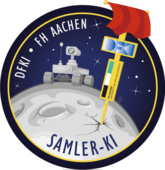The project has the goal to open the potential for future micro rover missions by distinct further development and TRL increase of critical components. For this purpose, in addition to a generalized mission analysis, a realistically applicable microrover will be designed and configured in its core subsystems to serve as a reference model for further subsystem development and TRL increase, e.g., in terms of mass, power, communications budget, etc. Conceptual design and analysis for the technical survival in the cold and long nights will be a focus. Innovations such as the use of Infused Thermal Solutions (ITS) concepts in the structure of the microrover or the modularization and design of a thermally regulated rover garage will be considered in order to find the most flexible, modular and efficient solution for an efficient energy budget. Another focus is related to the further development and optimization of already existing AI-based robot control and navigation software including mission-relevant sensor and processor architectures. Mission parameters, such as mission duration, landing site, and specific lunar surface activities such as traversing shadowed areas or entering a crater, will strongly influence the rover's system design. Requirements and adaptations to the hardware, sensors for navigation and control and telemetry, as well as AI-driven software for e.g. a break of the radio link by interrupting the line of sight will be brought together and investigated in this project. A particular challenge is the adaptation of the computationally demanding AI algorithms to the respective on-board processing capabilities. In addition, the ability to operate at different levels of autonomy and to easily switch between them will be investigated and implemented. This is particularly necessary in terms of optimal resource utilization and, on the other hand, enables a significant increase in efficiency and system capabilities by applying AI-driven autonomous operations. The developments provide technical solutions for lunar rover components to operate in extreme environmental requirements (such as permanent shadow or the lunar night) and enable the system to meet challenging mission objectives with limited immediate access by applying AI methods semi-autonomously.
Partners
Fachhochschule Aachen


